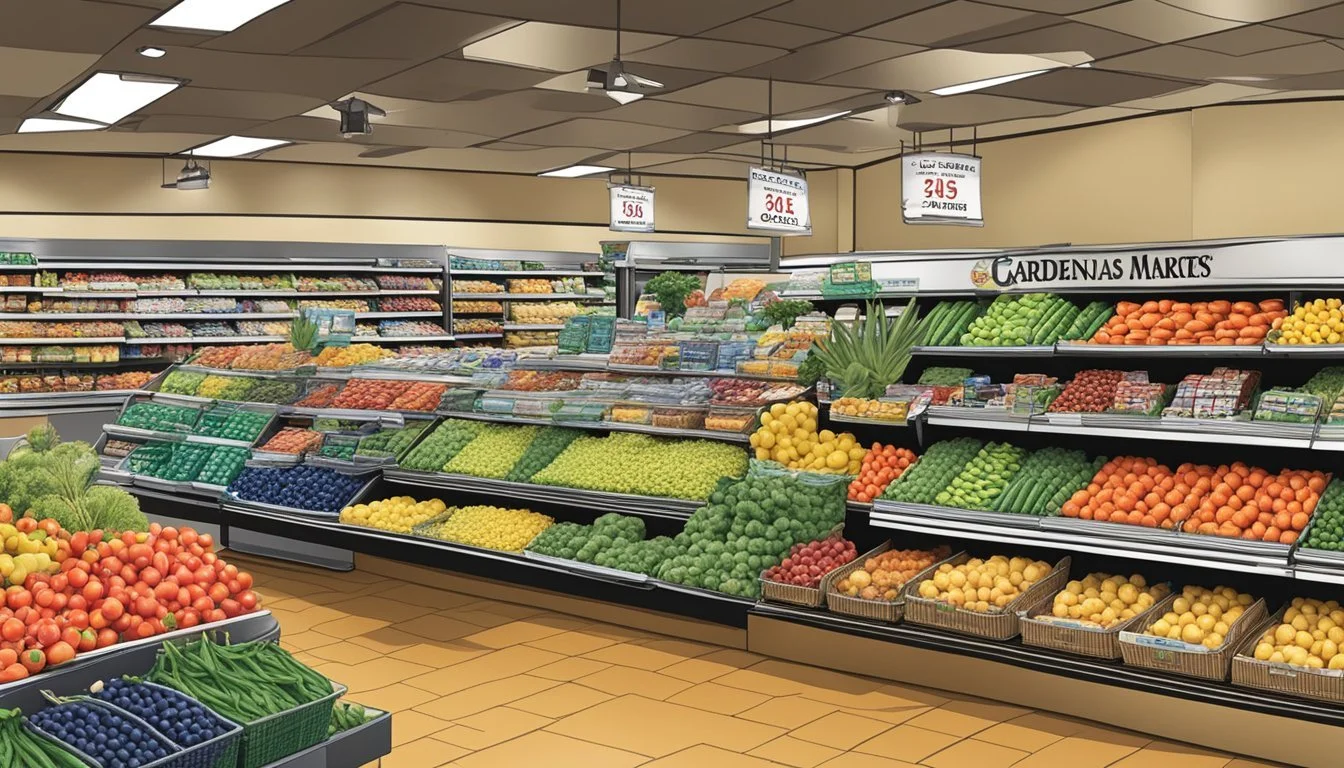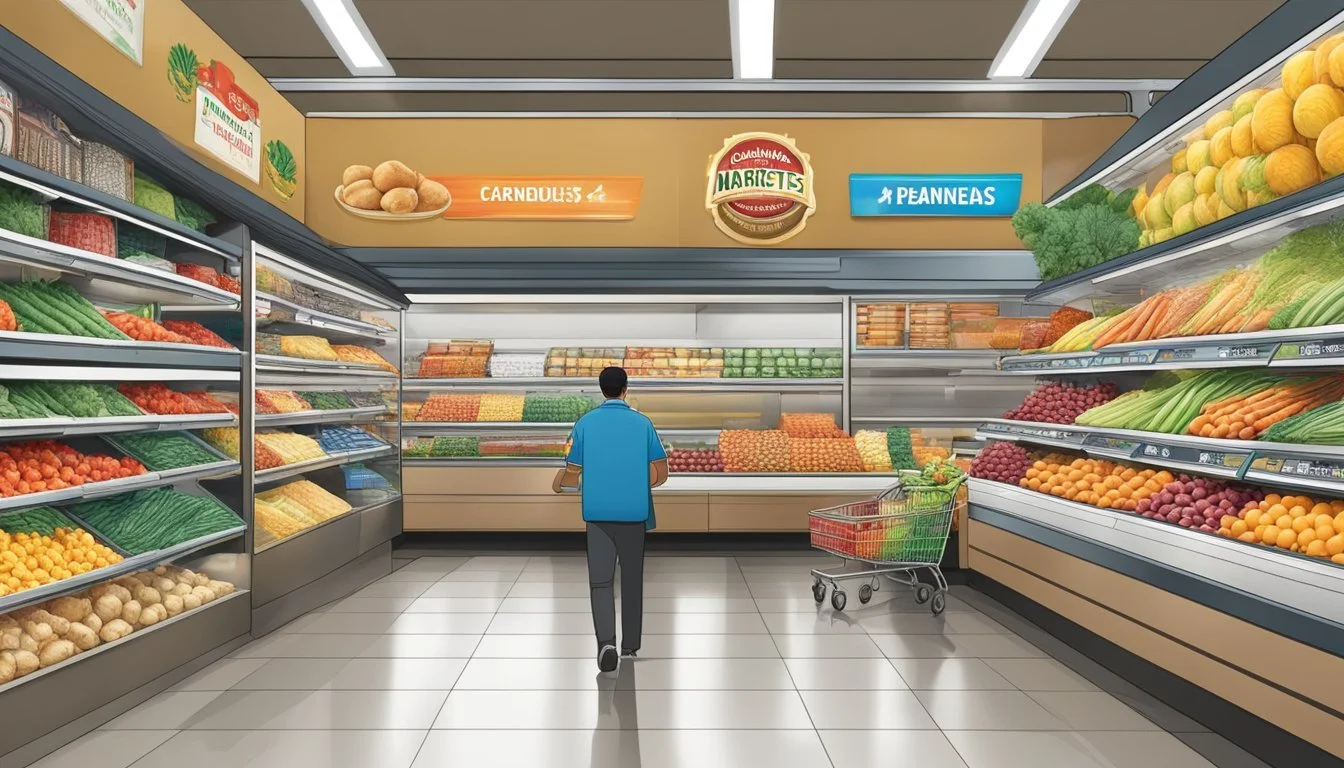Is Cardenas Markets Cheaper Than Demoulas Market Basket?
A Price Comparison of Two Regional Grocery Chains
Comparing grocery store prices can help shoppers save money on their weekly food bills. Two regional chains known for their competitive pricing are Cardenas Markets and Demoulas Market Basket. While both aim to offer affordable options, their pricing strategies and target demographics differ.
Market Basket is generally considered to be one of the most affordable grocery chains in the United States, often beating out larger competitors like Walmart and Aldi on price. This New England-based company has built a reputation for keeping costs low while maintaining quality, earning loyal customers across its 88 stores in Massachusetts, New Hampshire, Maine, and Rhode Island.
Cardenas Markets, on the other hand, focuses on serving Hispanic communities in the southwestern United States. While it strives to offer competitive prices, its specialization in Latin American products and fresh produce may result in different pricing structures compared to Market Basket's more mainstream American grocery offerings. The two chains operate in different regions, making direct comparisons challenging for most shoppers.
Company Overviews
Cardenas Markets and Demoulas Market Basket are two prominent supermarket chains with distinct histories and regional focuses. Both have grown from humble beginnings to become significant players in their respective markets.
History of Cardenas Markets
Cardenas Markets began as a small family business in 1981. Founded by Jesús Cardenas and his wife Luz, the company started with a single store in Ontario, California. The Cardenas family drew on their Mexican heritage to offer authentic Hispanic foods and products.
Over the years, Cardenas Markets expanded throughout Southern California and beyond. The chain grew to serve predominantly Hispanic communities, providing fresh produce, meats, and traditional Latin American ingredients. By the 2020s, Cardenas Markets had become one of the largest Hispanic supermarket chains in the United States.
The company's growth included strategic acquisitions of other Hispanic grocery stores. This expansion allowed Cardenas to strengthen its presence in existing markets and enter new regions.
History of Demoulas Market Basket
Demoulas Market Basket traces its roots to 1917 when Greek immigrants Athanasios and Efrosini Demoulas opened a small grocery store in Lowell, Massachusetts. Their sons, Mike and George Demoulas, took over the business in the 1950s and rapidly expanded it.
The chain grew throughout Massachusetts and New Hampshire, becoming a major presence in New England. Market Basket became known for its low prices, employee loyalty, and customer service.
In the 1990s, a family feud erupted between two cousins: Arthur T. Demoulas and Arthur S. Demoulas. This conflict culminated in a highly publicized dispute in 2014, when employees and customers rallied to support Arthur T. Demoulas's leadership.
Today, Market Basket operates 88 stores across Massachusetts, New Hampshire, Maine, and Rhode Island. The company remains privately held and continues to prioritize its employee-centric culture and competitive pricing.
Leadership and Business Models
The leadership styles and business models of Cardenas Markets and Demoulas Market Basket significantly impact their pricing strategies and overall operations. These factors play a crucial role in shaping each company's approach to cost management and customer value.
Executive Leadership
Arthur T. Demoulas, former CEO of Market Basket, gained widespread recognition for his employee-centric leadership style. His approach fostered strong loyalty among workers and customers alike. This loyalty became evident during a high-profile dispute with the board of directors in 2014.
The conflict centered around Arthur T.'s removal as CEO by his cousin, Arthur S. Demoulas. Employees and customers rallied behind Arthur T., organizing protests and boycotts. This unprecedented show of support led to Arthur T.'s reinstatement and buyout of the company.
In contrast, Cardenas Markets' leadership structure is less publicly known. The company has undergone ownership changes, including acquisition by investment firms.
Business Practices and Models
Market Basket's business model emphasizes low prices and employee welfare. The company offers a profit-sharing plan, which motivates employees to contribute to the company's success. This approach helps keep operating costs down while maintaining customer satisfaction.
Market Basket's revenue model focuses on high volume sales with thin profit margins. This strategy allows them to offer competitive prices while still generating substantial overall revenue.
Cardenas Markets targets a specific demographic, specializing in Hispanic grocery items. Their business model likely involves sourcing products that cater to this niche market. This specialization may impact their pricing structure differently than Market Basket's broader appeal approach.
Both companies face challenges in managing operating costs while maintaining competitive prices. Their differing leadership styles and business models influence how they navigate these challenges.
Pricing Strategies
Cardenas Markets and Market Basket employ distinct pricing approaches to attract customers and remain competitive. Both chains aim to offer value while adapting to market conditions and consumer preferences.
Cardenas Markets Pricing
Cardenas Markets focuses on providing affordable options for Hispanic and Latino shoppers. The chain uses a mix of everyday low prices and targeted promotions. They emphasize value on staple items like produce, meats, and traditional Hispanic foods.
Cardenas often runs weekly specials and loyalty programs to drive traffic. The company adjusts prices based on local competition and regional factors. Their pricing strategy aims to position them as a budget-friendly option for families.
Market Basket Pricing
Market Basket is known for its consistently low prices across product categories. The chain uses a cost-plus pricing model, setting retail prices at roughly double the wholesale cost. This approach allows for competitive pricing while maintaining profitability.
Market Basket's prices are typically 18% below the industry average. For a family spending $250 weekly on groceries, this can translate to over $2,300 in annual savings. The company keeps overhead costs low to support its pricing strategy.
Market Basket rarely uses coupons or loyalty programs. Instead, they focus on everyday low prices to build customer trust and loyalty. This straightforward approach has helped the chain thrive in a competitive market.
Customer Experience and Services
Both Cardenas Markets and Market Basket prioritize customer satisfaction through distinct approaches. Their strategies for customer service and loyalty programs aim to build long-term relationships with shoppers.
Customer Service Approaches
Cardenas Markets focuses on catering to Hispanic communities, offering bilingual staff and culturally relevant products. Their employees receive training to assist customers with traditional Latin American ingredients and recipes. Market Basket, on the other hand, emphasizes a no-frills approach with efficient service. Their staff is known for being helpful and knowledgeable about product locations.
Both chains prioritize short checkout lines. Cardenas Markets often has dedicated express lanes for customers with few items. Market Basket employs a team-based approach, with employees quickly shifting to open new registers during busy periods.
Loyalty and Rewards Programs
Cardenas Markets offers a digital rewards program called "Cardenas Club". Members earn points on purchases, which can be redeemed for discounts on future shopping trips. The program also provides exclusive deals and personalized offers based on shopping history.
Market Basket does not have a formal loyalty program. Instead, they focus on consistently low prices for all customers. This approach aligns with their philosophy of treating all shoppers equally, without the need for membership cards or special discounts.
Both chains have generous return policies. Cardenas Markets allows returns with a receipt within 30 days, while Market Basket is known for its hassle-free return process, often not requiring a receipt for exchanges or refunds.
Employee Relations and Work Culture
Market Basket and Cardenas Markets both prioritize employee satisfaction, though their approaches differ. Market Basket is known for its strong employee loyalty and benefits, while Cardenas focuses on diversity and inclusion.
Workforce Management
Market Basket employs a profit-sharing program that distributes a portion of company earnings to workers. This incentivizes productivity and fosters a sense of ownership among staff. The company promotes from within, creating career advancement opportunities.
Cardenas Markets emphasizes cultural diversity in its workforce. They actively recruit bilingual employees to better serve their predominantly Hispanic customer base. The company provides language training to help non-Spanish speaking staff communicate effectively with customers.
Both chains invest in employee training programs. Market Basket offers extensive on-the-job training, while Cardenas provides cultural competency workshops to enhance customer service skills.
Employee Benefits and Relations
Market Basket offers competitive wages and a comprehensive benefits package. This includes health insurance, 401(k) plans, and paid time off. The company's employee-centric culture was highlighted during a 2014 worker-led protest to reinstate a popular CEO.
Cardenas Markets provides health insurance options and retirement plans to eligible employees. They also offer flexible scheduling to accommodate diverse work-life needs. The company hosts cultural events and celebrations to foster a sense of community among staff.
Both chains prioritize workplace safety. They implement strict safety protocols in stores and warehouses. Regular safety training sessions are conducted for all employees, including drivers and warehouse workers.
Product Selection and Supply Chain
Cardenas Markets and Demoulas Market Basket have distinct approaches to product selection and supply chain management. These differences impact their inventory, pricing, and relationships with suppliers.
Inventory and Stock
Cardenas Markets focuses on Hispanic and Latino products, offering a wide variety of fresh produce, meats, and specialty items. Their shelves are stocked with authentic ingredients and brands popular in Latin American cuisine. Fresh vegetables and fruits are prominently displayed, often sourced from local farms when possible.
Demoulas Market Basket, in contrast, carries a more traditional American grocery selection. They pride themselves on maintaining well-stocked shelves with a mix of national brands and their own private label products. Market Basket is known for its competitive prices across all departments, from produce to packaged goods.
Supplier Relations
Cardenas Markets has cultivated strong relationships with suppliers specializing in Hispanic food products. They work closely with vendors to ensure a steady supply of authentic ingredients and specialty items. This focus allows Cardenas to negotiate favorable terms and maintain competitive pricing on their core product lines.
Market Basket's approach to supplier relations centers on volume purchasing and efficient logistics. They leverage their large store network to secure bulk discounts from major national suppliers. Market Basket's lean operations and direct sourcing strategies help keep costs down, allowing them to offer consistently low prices to customers.
Market Presence and Expansion
Cardenas Markets and Market Basket have established distinct regional presences and expansion strategies. Both chains have grown their store networks over time to serve more customers in their respective markets.
Store Locations and Reach
Cardenas Markets operates 59 stores across three states. The chain has 51 locations under the Cardenas Markets banner, 7 stores as Los Altos Ranch Markets, and 1 Cardenas Ranch Markets store. Its footprint covers California, Nevada, and Arizona, with a concentration in Southern California.
Market Basket has a larger network of 88 supermarkets. These stores are located across four New England states: New Hampshire, Massachusetts, Maine, and Rhode Island. The company's headquarters is in Tewksbury, Massachusetts, while its origins trace back to Lowell, Massachusetts.
Growth and Development
Cardenas Markets is actively expanding its Southern California presence. The company recently acquired 6 Rio Ranch Market stores, bolstering its density east of Los Angeles. This strategic move increases Cardenas' store count and enhances its fresh food offerings.
Market Basket has taken a more measured approach to growth. The chain has gradually added locations over its century-long history. Despite its regional focus, Market Basket has achieved significant scale, with annual revenues estimated at $1.5 billion. The company maintains an official website and Facebook page to connect with customers.
Community Impact and Social Considerations
Cardenas Markets and Demoulas Market Basket have significantly influenced their local communities through consumer advocacy and community involvement. Both chains have faced unique challenges and opportunities in their roles as neighborhood grocers.
Consumer Advocacy and Protests
Market Basket experienced a notable consumer protest in 2014. Employees and customers rallied against the board's decision to oust CEO Arthur T. Demoulas. The six-week standoff saw empty shelves and picket lines. Loyal shoppers boycotted stores, supporting workers' demands for Arthur T.'s reinstatement.
The dispute ended with Arthur T. buying the company. This event showcased the strong connection between Market Basket and its community. Customers valued the chain's low prices and employee treatment enough to take action.
Community Involvement and Impact
Cardenas Markets established the Cardenas CARES program in 2022. This initiative supports local nonprofits in areas where Cardenas operates. The program focuses on education, health, and youth development.
Market Basket's community impact stems from its low-price strategy. The chain's affordable groceries have helped families weather economic challenges since the Great Depression. Market Basket often expands into underserved areas, bringing jobs and fresh food options.
Both companies prioritize hiring from local communities. This practice creates stable employment opportunities and fosters strong ties with neighborhoods they serve.
Comparative Analysis
Cardenas Markets and Market Basket both aim to provide affordable grocery options, but their approaches differ. A closer look at their pricing strategies and overall value propositions reveals key distinctions.
Cost Comparison
Market Basket consistently offers exceptionally low prices across its product range. A 2022 study by consumer data firm Dunnhuby ranked Market Basket among the most affordable grocery chains, competing directly with giants like Aldi and Walmart. Families shopping at Market Basket can potentially save thousands of dollars annually compared to other stores.
Cardenas Markets, while also focused on affordability, may not match Market Basket's rock-bottom prices across the board. However, Cardenas often provides competitive pricing on Hispanic and Latin American specialty items, which may not be as readily available at Market Basket.
Value Proposition
Market Basket's value extends beyond low prices. The chain is known for its quality products and customer service, creating a loyal following. Its "More for Your Dollar" motto resonates with shoppers seeking both affordability and quality.
Cardenas Markets emphasizes its role as a Hispanic supermarket, offering a unique selection of authentic products and fresh produce. This specialization provides value to customers seeking specific cultural items or ingredients.
Both chains prioritize affordability but cater to different customer bases. Market Basket appeals to a broad audience with its general low-price strategy, while Cardenas Markets targets Hispanic communities with tailored offerings and competitive pricing on specialty goods.










